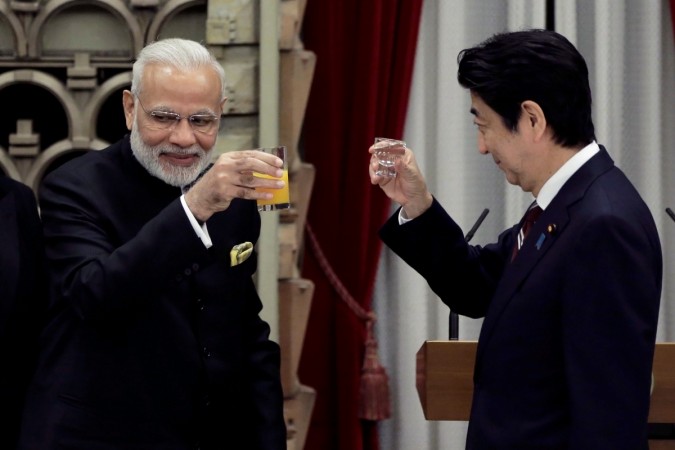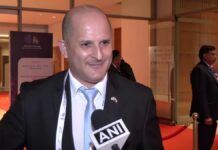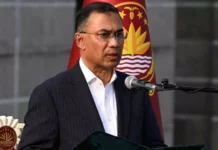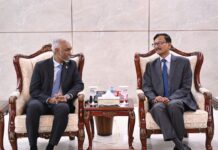 NEW DELHI/TOKYO: India and Japan Monday concluded one of the largest bilateral currency swap agreements at USD 75 billion that will help in bringing greater stability in foreign exchange and capital markets in the country.
NEW DELHI/TOKYO: India and Japan Monday concluded one of the largest bilateral currency swap agreements at USD 75 billion that will help in bringing greater stability in foreign exchange and capital markets in the country.
The agreement will further strengthen and widen the depth and diversity of economic cooperation between the two nations.
“With a view to enhancing financial and economic cooperation, governments of Japan and India welcomed the agreement to conclude a Bilateral Swap Arrangement (BSA) of USD 75 billion,” said India-Japan Vision Statement.
The statement was released after India-Japan Annual Summit between Prime Minister Narendra Modi and his Japanese counterpart Shinzo Abe in Tokyo.
Commenting on the development, Economic Affairs Secretary S C Garg said in a tweet: “Bilateral swap arrangement with Japan for USD 75 billion is one of the largest swap arrangements in the world.
“Accepting Japanese request, India agreed to do away with requirement of mandatory hedging for infrastructure ECBs of 5 years or more minimum average maturity”.
The finance ministry said the currency swap agreement should “aid in bringing greater stability to foreign exchange and capital markets in India…This facility will enable the agreed amount of foreign capital being available to India for use as and when need arises”.
The facility will also help in bringing down the cost of capital for Indian entities while accessing foreign capital market, it added.
Recognising the unparalleled potential for development of relations between the two countries, Modi and Abe reviewed the significant milestones achieved over the last four years and outlined a shared vision for the future of India-Japan relations.
The two leaders remain committed to synergising India’s demographic dividend and Japan’s capital and technology to realise the true potential of the India-Japan economic partnership for a prosperous future.
“In this regard, India welcomed Japan’s strong support for key transformational initiatives such as Make in India, Skill India and Clean India Mission, through sharing of resources and advanced technologies, and active mobilisation of Japanese public and private sector investments,” said the vision document.
The two leaders “reviewed with satisfaction” the progress made, including the signing of the Exchange of Notes for yen loan, on the Mumbai-Ahmedabad high speed rail project, which is an important symbol of India-Japan collaboration.
They also welcomed the continued cooperation on metro projects which support smarter development of Indian cities.
“India further appreciated Japan’s role in promoting connectivity through quality infrastructure projects such as the Western Dedicated Freight Corridor and the Delhi-Mumbai Industrial Corridor,” said the vision document.
Modi and Abe welcomed the expansion of Japan’s FDI in India under the “India-Japan Investment Promotion Partnership , the progress made in Japan Industrial Townships (JIT) and other initiatives included in the Japan-India Roadmap for Investment Promotion.
Both leaders welcomed the launching of a comprehensive India-Japan Digital Partnership with a vision to develop IoT and AI solutions for societal benefits and explore collaboration in emerging technologies by utilising ‘Japan-India StartUp Hub’ in Bengaluru and NASSCOM’s IT corridor project in Hiroshima Prefecture.
Recognising the close cooperation in IPR between the Intellectual Property Offices of the two countries, the leaders concurred to start a bilateral Patent Prosecution Highway programme on a pilot basis in certain identified fields of inventions in the first quarter of FY 2019.
On currency swap pact, the finance ministry said the arrangement is expected to help in containing the current account deficit and rupee volatility.
It further said the government has taken various measures to attract foreign capital, like relaxing the external borrowing norms, issuance of off-shore Masala bonds and hiking import duty on non-essential items. PTI






